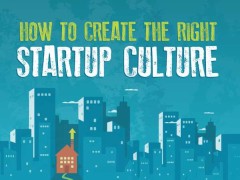Developing a Startup Culture

Tools & Frameworks from Kulturenvy
Magentude recently met with Corey McAveeney, founder of Kulturenvy LLC, a consultancy that helps startups develop and reinforce their venture’s culture. During this interview, Corey shares insights and advice for founders to understand trends in startup culture and think through their own startup’s environment.
Why is developing a startup culture important?
As leaders and visionaries for the company, founders need to set the stage for their team to be able articulate who they are, both internally and externally. It can sometimes be challenging for founders to communicate this to their teams, but those who do it well find a lot more ease and fluidity in connecting with their teams.
Are there any classifications or ‘archetypes’ of culture?
While I prefer not to generalize given that every organization is unique, I do note differences based on size and maturity, geography, and other demographics. Patterns also exist among different startups and some of this differs by industry.
Many of the stereotypical archetypes of startup culture don’t do the company justice in regards to what they’re actually striving towards. For example, many companies want to have a ‘fun’ culture, but in reality, they struggle to find the right balance of fun and productivity, which can cause angst about what is the most effective and happy culture and how to obtain it.
What are some of the patterns you see in tech startups?
A lot of startups are keen on transparency, and that’s largely driven by our society’s current culture and the direction of our expectations as individuals and employees. Transparency can make startups more effective because it holds individuals accountable and provides leaders an opportunity to reflect on their ideas, ideally before they take action. This instills a lot of confidence and trust in their team, and it can also strengthen the company’s reputation.
Along with transparency comes authenticity, which is also easily observed by employees. In having the startup’s leadership team share their expectations, goals, and desired company identity, the team will be able to measure ideals against practices to ‘judge’ if the startup is being authentic to itself. If the company lives up to expectations and representations of who they are, then you know they’re authentic, and this is a really important factor of talent retention and satisfaction.
What are the first things you encourage founders to think about when they start to develop their startup?
Early stage startup founders should start thinking about how to initiate awareness and conversations about the culture in general. If founders and their teams state at the very beginning that it is their mission to have a strong startup culture, then everyone can get on the same page and work to nurture and uphold that culture.
Founders should dig deep and evaluate the actionable side of the company’s values, such as expecting senior employees to be direct with clients and honest with their feedback when it comes to team performance and reviews. Being able to articulate why and how things within an organization tie to a company’s values is something a company should be cognizant of on day one.
Are there any frameworks you use for developing a startup culture?
A loose framework of approaching culture can consist of:
- Identity. This refers to the company’s identity, its values, and how others see them, essentially its brand. When a company is successful in crystallizing these aspects, they can more easily communicate who they are externally and attract the right clients or customers. This is an integral part of culture, since a culture is made up of a shared set of practices, beliefs, behaviors, and ideas of the venture—it’s about attitude and leadership within the identity of a startup.
- Growth. Startups experience both physical growth and maturation. A company’s headcount often determine the cultural needs as change occurs. The dynamics and routines will likely change as a team grows professionally as well. Being aware of the changes at different stages of growth can help sustain the cultural environment that you want to inspire and encourage everyone to participate.
- Relationships. Relationships are critical to any business, and especially in startups. The relationships a founder builds with his or her team can help drive growth and encourage higher levels of participation. If a founder thanks a team member in person, for example, it is far more personable. Recognizing the team and the effort a founder makes to connect with others strengthens the group overall.
As startups change over time, can they still maintain the same culture?
All cultures evolve over time, whether we’re referring to the workplace or society in general. Startup cultures are no different and in order to sustain an effective startup culture there needs to be a constant and deliberate effort to inspire the everyone to participate in their community. Oftentimes folks are nostalgic for the early days of their startup culture. For example, when companies move to a new location or increase their headcount significantly, it tends to displace the team. Part of those growing pains comes with the realization that what the team was in the beginning might not be the same team down the road. You just have to stay excited about the things to come. The enthusiasm, awareness, and participation can still be initiated as it was in the beginning, but it will need to change or evolve as the company grows.